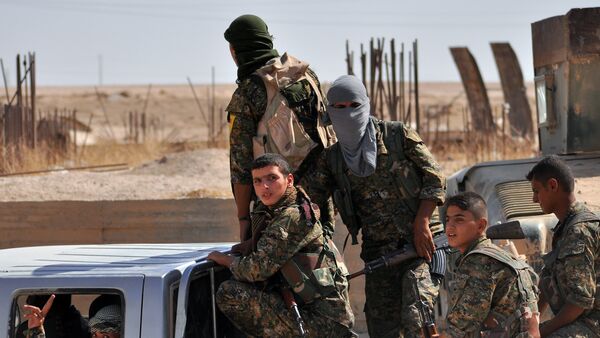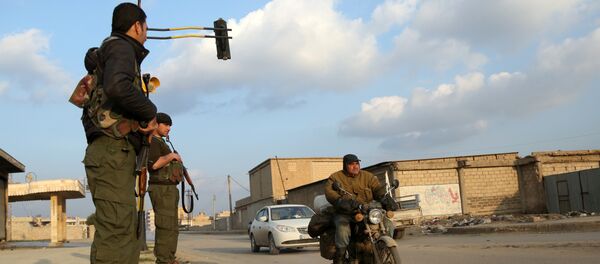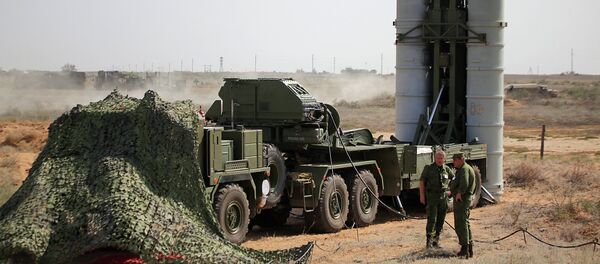Turkey's decision to shoot down a Russian Su-24 bomber in November made Moscow furious; in turn, the Kremlin decided to support Kurdish forces in Syria, d'Auzon said.
According to the author, Moscow allegedly sent arms to 5,000 Kurdish fighters in Afrin.
"Russian military assistance to the Kurds is, without a doubt, part of Russia's response to the actions of the Ottoman Empire [Turkey]," d'Auzon explained, according to Le Huffington Post.
Fighters from the predominantly Kurdish group People's Protection Units (YPG) not only successfully defended their territories from Daesh, but also pushed the jihadists out of a few key areas in northeastern Syria over the past year.
Working in coordination with Russian planes, Kurdish forces have advanced into the western part of Afrin. The move has made the Turkish government very uncomfortable, as it threatens to cut a major supply route between Ankara and Turkey-backed rebels in Syria, the Wall Street Journal (WSJ) said.
The installation of Russian S-400 anti-aircraft systems in Syria following the downing of the Russian Su-24 helps Kurdish forces a great deal, as they prevent the Turkish Air Force from bombing Kurdish positions. Without Ankara's airstrikes against them, Kurdish fighters have pushed Daesh from the western bank of the Euphrates River, WSJ said.
Since the US government isn't doing a great job fighting Daesh in Syria, it has to rely on the Kurds as its primary and most effective partner in the country, WSJ said.
Furthermore, Washington's anti-Daesh campaign is mostly taking place in Iraq, where the US-led coalition focuses most of their airstrikes. The Obama Administration seems to have given Russia freedom of action in Syria, which Moscow is using effectively, Le Huffington Post reported.




